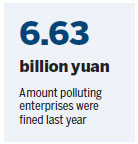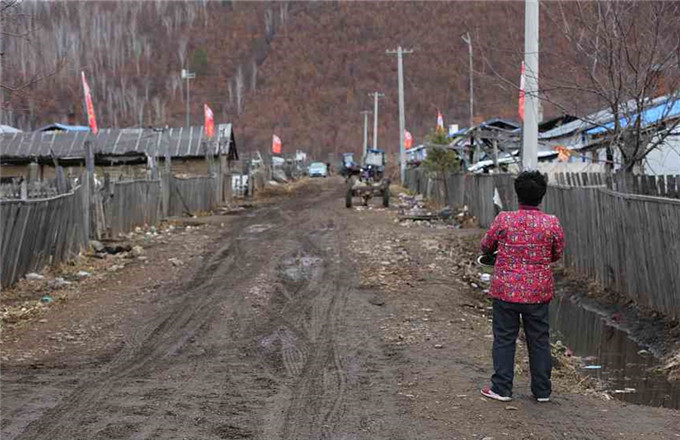Further ecological oversight launched
China launched another round of monthlong environmental inspections in seven provincial regions on Monday to push the provincial and city governments to reduce pollution, according to the nation's top environmental authority.
National inspection teams have begun work in Fujian and Hunan provinces, and will soon move to Tianjin municipality and the provinces of Shanxi, Liaoning, Anhui and Guizhou, the Ministry of Environmental Protection said on Monday.
Also on Monday, the ministry submitted two reports on environmental protection results from 2016 to the National People's Congress Standing Committee. The reports said central-level inspections - regarded as a powerful tool to monitor provincial governments in environmental protection-had been completed in 16 provincial regions, including Beijing and Shanghai.

More than 33,000 reports of pollution were received from the public, of which 8,500 led to punishments and total fines reaching 440 million yuan ($64 million), the reports said.
"We clarified the environmental responsibilities of governments in the regions while conducting the inspection," said Chen Jining, the environmental minister, adding that 6,454 officials had been held accountable for poor performance in environmental protection.
The central government plans to inspect all of China's 31 provincial regions by the end of 2017, the ministry said.
In addition, environmental departments at all levels have been ordered to strengthen their law enforcement efforts, the reports said. The lower-level departments handed down 124,000 administrative punishments to polluting companies and told them to pay 6.63 billion yuan in fines, the reports said.
"But we know there is still a gap between public expectations on environmental protection and reality," Chen said, adding that the conflict between economic development and environmental protection in some regions is still serious. In addition to the fight against air pollution, environmental departments will continue to push forward the protection of water and soil across the country, the reports said.
"We'll further study and revise a series of laws this year, such as the ones on prevention of water pollution and nuclear safety," he said.
Chen Haisong, professor of environment at Zhongnan University, applauded the reports but said some problems, such as a lack of standards on the content of environmental reports, still exist.
"It's necessary to regulate how reports are made and what should be reported in a timely manner, as well as improving the transparency of reports," he said.

























